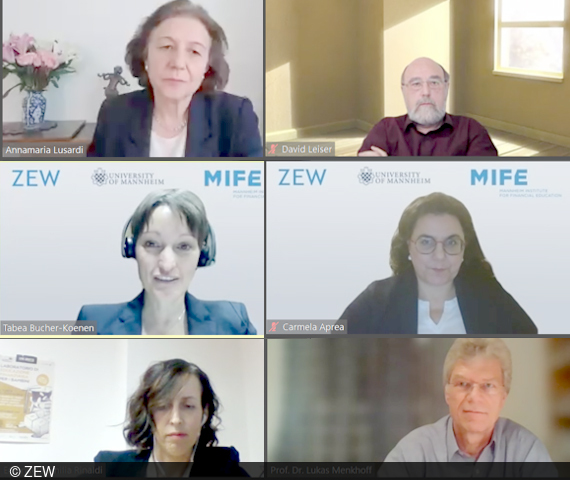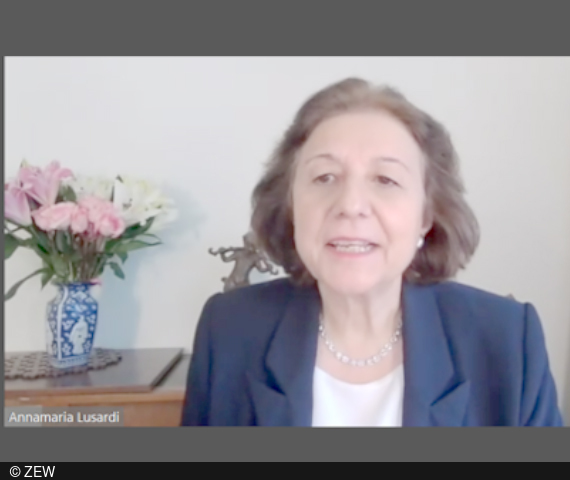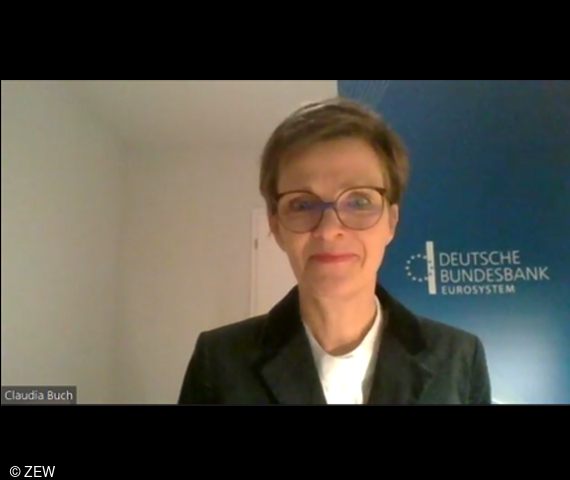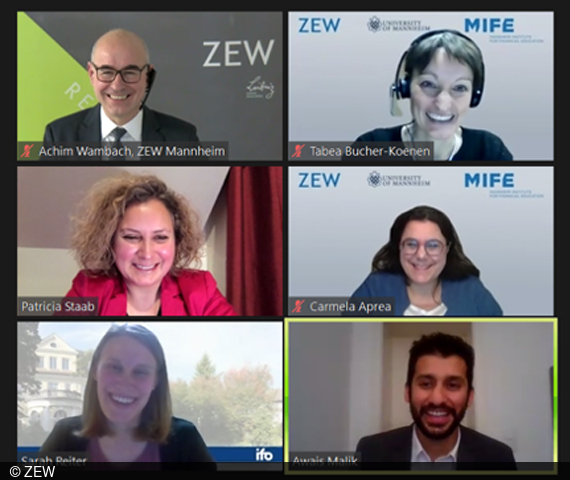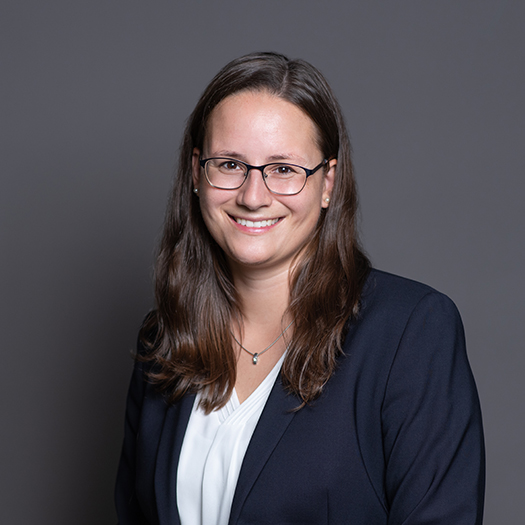MIFE Tackles Financial Literacy Across the Disciplines
ConferencesJoint Initiative by ZEW and the University of Mannheim
What do individuals know about financial issues and how does this influence their savings and consumption decisions? How can financial education support the development of financial knowledge and skills? These and related questions are complex and multifaceted. They were discussed during the inaugural conference of the Mannheim Institute for Financial Education (MIFE), a joint initiative of ZEW Mannheim and the University of Mannheim. The conference took place online on 29 and 30 November 2021 and was followed by an early career workshop on 1 and 2 December 2021.
Financial literacy has become a key concern for every citizen, and an important prerequisite for economic and societal well-being. Individuals face major challenges when it comes to making financial decisions: Long-term trends like demographic change and digitalisation have far-reaching implications for old-age provision, savings behaviour, interest rates, and financing conditions. Unforeseen events as the ongoing COVID-19 pandemic add further pressure. To foster interdisciplinary research about financial literacy and financial education, Professor Carmela Aprea from the University of Mannheim and Professor Tabea Bucher-Koenen from ZEW Mannheim jointly founded the Mannheim Institute for Financial Education (MIFE) in May 2020. At the MIFE inaugural conference in November 2021, high-profile keynote speakers and renowned researchers discussed their perspectives on how financial education can foster financial literacy and shape financial decision-making. More than 100 experts from academia, policy, and practice joined the inaugural conference online. Highlights of the conference were the keynotes given by Annamaria Lusardi, professor of economics and accounting at the George Washington University School of Business (GWSB) in the US, David Leiser, professor of psychology at the Ben Gurion University of the Negev (BGU) in Israel, and Professor Claudia Buch, vice president of the Deutsche Bundesbank.
The importance of financial literacy and financial education
After a welcome address by Carmela Aprea and Tabea Bucher-Koenen, guests from politics and academia offered their congratulations on the founding of MIFE. The well-wishers shared their enthusiasm for the new institute and emphasized its relevance in supporting future challenges, such as promoting the financial education of the next generation, or fostering a self-determined life in a world with increasingly complex financial decisions. The contributors were:
- Dr. Hans J. Reiter, ministerial director and head of the Ministry of Science, Research and the Arts of the State of Baden-Württemberg
- Professor Achim Wambach, ZEW president
- Professor Thomas Puhl, president of the University of Mannheim
- Dr. Patricia Staab, president of the Deutsche Bundesbank’s Regional Office in Baden-Württemberg
- Joachim Lutz, dean of the Business School, University of Mannheim
- Christiane Ram, head of Mannheim’s Department of Economic and Structural Development
Financial literacy and financial well-being
As founder of the Global Financial Literacy Excellence Center (GFLEC) and main initiator of the research field of financial literacy, Annamaria Lusardi gave the first keynote. In her speech, she argued that financial well-being is related to consumers’ ability to handle their own finances. The public, however, knows little about finance and is poorly informed about investing, insuring, and risk-taking. To make matters worse, financial knowledge is unequally distributed among societal groups: it is especially low among people with little education, women, and individuals with low income. The low level of financial literacy is also reflected in the level of confidence individuals feel about their own financial situation. Financially literate individuals are less likely to be financially vulnerable or debt-constrained. Therefore, improving financial literacy could enhance consumers’ well-being and confidence concerning their financial situation, she concluded.
Effective financial education requires understanding
In his keynote, David Leiser, co-founder of the Center for Pension, Insurance and Economic Psychology, presented his thoughts on how to help people achieve their financial goals. He presented several insights from his research on the Israeli pension system. The three main hypotheses he put forward were that
- people are highly ignorant,
- this ignorance is not random, but rather reflects the mental models that people have, and
- this ignorance in turn affects people’s behaviour.
Using examples from his research, he illustrated that there is room for improvement. However, in order to assist individuals effectively, it is essential to understand what people really want and what they value.
Panel discussion on financial literacy across the disciplines
Following the keynotes, Annamaria Lusardi, David Leiser, Emanuela Rinaldi, Lecturer in Sociology at the University of Milano-Bicocca in Italy, and Lukas Menkhoff, professor of economics at the Humboldt University of Berlin and head of the international economics department at DIW Berlin, discussed future directions for research in the field of financial literacy. They gave valuable insights into important research questions and promising research areas. Co-operation with professionals from other fields has a large potential to advance the field of financial literacy, but publishing interdisciplinary research can be challenging.
Key aspects for a national financial literacy strategy
The second day of the conference focused on policy related aspects of financial education. The day started with an impulse lecture by Chiara Monticone, PhD, senior policy analyst at the OECD in Paris. She summarised key learnings from the experience of the OECD/INFE for a national financial literacy strategy, and stressed that there is no one-size fits all national financial literacy strategy.
National strategy for financial education in Germany
A panel of German experts and practitioners from different fields discussed the national strategy for financial education in Germany. The panel was moderated by Professor Barbara Brandstetter from the University of Applied Sciences Neu-Ulm. The panel consisted of Arno Limmeroth from the Ministry of Education, Youth and Sports Baden-Württemberg, Ines Moers from the Federal Working Group on Debt Counselling, Niels Nauhauser from the Consumer Association Baden-Württemberg, Dr. Sally Peters from the Institute for Responsible Finance (iff), Simon Schöbel from InvestScience, and Sven Schumann from Deutsche Börse AG. They agreed that financial education should be included in schools, but not be limited to this target group. Instead, a life cycle perspective is needed. In addition, there was also a consensus that a purely knowledge-oriented view of financial education is not enough. Instead, financial education at any age should particularly address the ability to make sound financial decisions as well as overarching issues such as identifying the interests of financial market players or acknowledging the role of stable financial markets. They also pleaded for self-control, ecological aspects, and the ability for self-reflection, as well as social images of consumption and renunciation to be viewed as integral parts of financial education in the 21st century. Warning against overstretching the concept of financial literacy, the discussants finally argued for financial education that critically addresses society’s image of money and debt, and recognizes failure as part of financial life, while being aware of the need and demand for independent information sources and adequate regulation of financial markets.
The role of financial literacy and institutions for financial stability
In the final keynote, Claudia Buch, vice president of the Deutsche Bundesbank, presented Bundesbank’s newly issued financial stability report, followed by a discussion with ZEW President Achim Wambach about the relation between financial stability and financial literacy. Buch emphasised that financial literacy is an important element for financial market stability. In addition, public trust in financial institutions is crucial. Hence, the Bundesbank prioritises transparency and accountability in its activities.
Deutsche Bundesbank Early Career Research Prize on Financial Literacy and Early Career Workshop
The Deutsche Bundesbank Early Career Research Prize on Financial Literacy, worth 5,000 euros, was awarded to Sarah Reiter from the ifo Institute and Awais Malik from TU Dresden. They were selected from among the MIFE Early Career Workshop participants. In their paper “The Effect of Financial Literacy on Granting Third-Party Guarantees”, Sarah Reiter and her co-authors investigate the effect of financial literacy on the granting of a guarantee on a third-party liability using data from ten Eastern European countries and develop guarantee literacy as a new financial literacy concept. Awais Malik and his co-authors examine whether the application of multimedia principles to the UI of banks’ webpages supports learning, retention, and transfer of knowledge about mortgages by implementing a quasi-experimental research design. The paper is titled “User Interface (UI) Design of Banks’ Webpages and its’ Influence on Fostering Financial Literacy of Users Through Informal Learning”. Both winners proposed innovative and interesting research questions relevant for financial stability.
The inaugural conference was followed by the two-day MIFE Early Career Workshop, in which young researchers presented twelve research papers on financial literacy. Presenters and discussants came from different fields, including economics, household finance, economics and business education, psychology, and related disciplines.
About MIFE
The Mannheim Institute for Financial Education (MIFE) conducts basic research on financial education of all population groups in the 21st century on the basis of state-of-the-art research methods. Our research focuses on financial literacy, i.e. the knowledge and skills associated with adequate financial decision-making, as well as on the conditions and possibilities for effectively supporting the development of this knowledge and skills through appropriate educational, communication and information measures.
At the same time, we offer a platform for academic exchange and close contact with decision-makers in politics and practice. The Mannheim Institute for Financial Education (MIFE) thus combines relevant scientific expertise with social responsibility and evidence-based policy advice.
